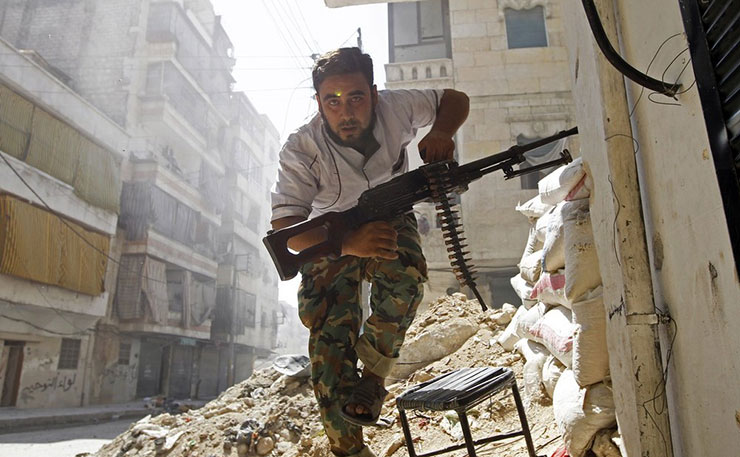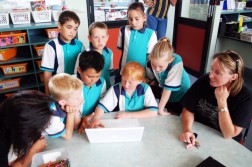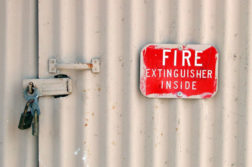In an Australian classroom, you don’t have the luxury of telling your students ‘don’t mention the war’. Sam Shetler explains.
“Shock!” A shooting and bombing in Paris. “Horror!” the headlines read. The death toll kept growing… Finally it slowed to 132 French civilians when it seemed it’d never stop. So, so many killed and injured.
I was both shocked at what happened and afraid for what would come next. I’m no expert in international politics or counter-terrorism, but I kept watching and reading.
As a teacher of history and society, I have a duty and burden to keep a handle on current events and to accurately make some sense of such sense-numbing acts to my students.
Like a book crashing to the floor making a sudden loud noise, “Did you hear about Paris?” one student asks. Dreading the question’s inevitability, I day dream it dissipates like a bubble floating upwards toward the sun shining through the window. “Pop!” I’m a teacher. So, I turn this question into a whole class discussion. Just as inevitable as the question is, so are some of the responses. There is a handful of students who blame Muslims, sadly.
Being a teacher is like walking a tightrope at times. If I say the wrong thing, there are multiple layers of accountability where my words can come back to bite me. There is the teacher registration board, the department of education, the school admin, the parents and being stuck in a room for a year with a student who holds a grudge.
There is a variety of opinions, thankfully. Most don’t say much but think the acts are awful and can’t fathom why anyone would do such a thing. Others say it is downright “evil” and can only be done by “monsters.” Several blame a specific religion, Islam.
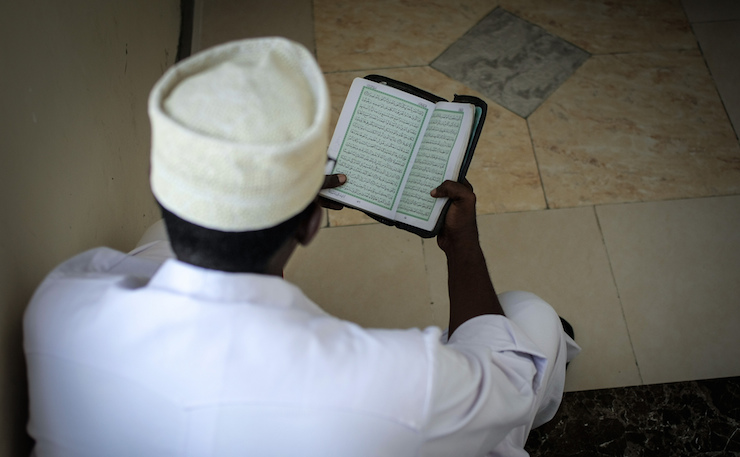
Walking out on a limb, which paradoxically is both bedrock and brittle, I declare, “Islam did not commit these acts, extremists did. They are different. In fact, ISIS kills mostly Muslims. It’s important to not unfairly discriminate against people based on their religion.”
Perhaps I’m not sufficiently jaded from government school bureaucracy yet, and still emphasise human rights, which all nation-states laugh at and ignore when it suits, but I take seriously discrimination based on race and religion. I can’t say all my colleagues do. With the hard bit out of the way, a history lesson is next.
Yet, how to explain “terrorism” to someone who has never known a world pre-9/11? How to lecture or explain at semi-length and keep students awake at the same time too? If the content has relevance to the individual student and connects to recent events, they tend to stay awake I’ve noticed. Time is on my side is seems.
Then again, time is my worst enemy; there’s never enough time in class. I decide to start with Iraq and work my way to Syria to explain the acronym ISIS or Islamic State in Iraq and Syria.
We had been talking about the Iraq War in a previous class. The twin towers fell in New York then the United States and its’ allies, including Australia, went into Afghanistan in 2001.
Two years later they went into Iraq, with the exception of France, who would put ground troops in Afghanistan and bomb Iraq in more recent history.
In our previous class debate, most thought we illegally invaded Iraq, with few disagreeing. Next, Iraq’s leader Saddam Hussein was swiftly ousted, the country descended into sectarian violence and as a result of the instability and the US disbanding Iraq’s military, former Iraqi generals now make-up part of ISIS leadership. Talk about over a decade in a nutshell!
Syria is much more difficult to sum-up, being uncharted waters for my class and very complicated in its own right.
In 2011, large protests for more democracy swept parts of the Middle East, now known as the Arab Spring. Syria’s protests weren’t as successful as in Egypt with the ousting of Hosni Mubarak, partly because Syrian President Bashar al-Assad cracked down heavily on protestors, even having the military open fire on them.
In real short form, some of the protestors took up arms against Assad and that’s how the Syrian Civil War began.
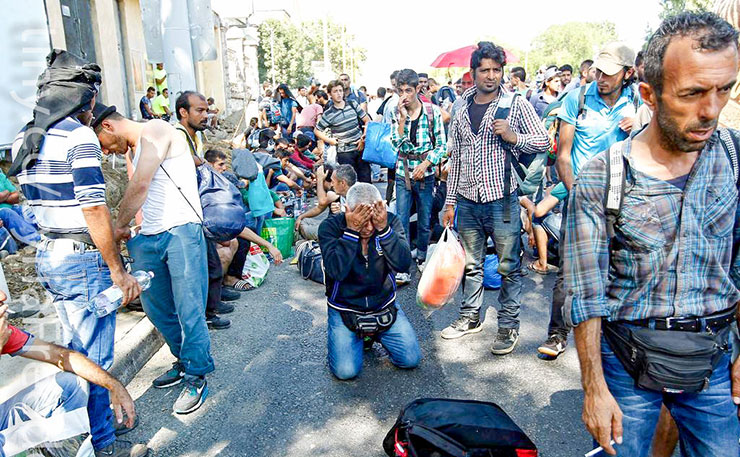
Refugees walk along Budaorsi Street on their way out of Budapest, Hungary. (IMAGE: Freedom House , Flickr)
Things became more complicated with multiple groups in different regions taking up arms as well, and for different reasons. Some wanted a reformed state, others a completely new government, some want territory they were promised long ago and, coming back to ISIS and affiliated extremist groups, others want to control parts of both Iraq and Syria undemocratically.
The different groups have different reasons, and different funders and suppliers of weapons too. The civil war has become a proxy war where other countries’ conflict plays out without direct involvement of ground troops. As a result, both Iraq and Syria are being torn to shreds.
Some students are starting to fade. “Any questions?” Here it comes, “Aren’t they Islamic Terrorists?” Internally shaking my head. “No,” I say confidently. “Terrorists have nothing to do with Islam. If they say they do, it’s an extremist version which cannot and should not be attributed to over a billion and half Muslims spanning vastly different countries all over the world.”
Quickly to elaborate, I want to go into how Australia supports Saudi Arabia, which is a prime example of this extremist sect of Islam called Wahhabism and funds extremist groups in the region, but I don’t have time. It’s time to wrap up.
“ISIS, ISIL and IS, you can google the difference if you’re confused about the different names,” I say. ISIS came from Iraq, gained strength in Syria, and now controls parts of both. They have committed horrendous and atrocious acts, mostly to Muslims, especially minority groups. Many people are fleeing Iraq and Syria for safety and that’s why there are so many refugees. And, just several days ago, ISIS claimed a horrendous attack on Paris that killed at least 132 people.”
We are short on time so I suggest we continue this discussion in the next class. “Final thoughts?”
“Is ISIS going to bomb Australia?”
Gobsmacked, I reluctantly answer, “I don’t know” but “I can tell you this, we can make it far less likely if the Australian government stops bombing ISIS. Bombs mostly inspire revenge.”
And…
“Revenge won’t heal Paris or keep Australia safe.”
Donate To New Matilda
New Matilda is a small, independent media outlet. We survive through reader contributions, and never losing a lawsuit. If you got something from this article, giving something back helps us to continue speaking truth to power. Every little bit counts.

